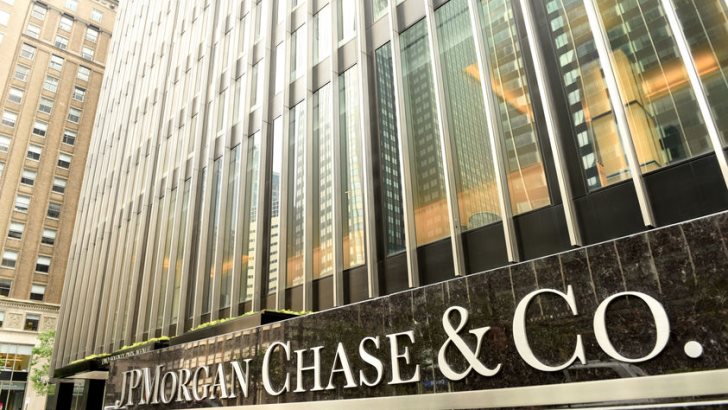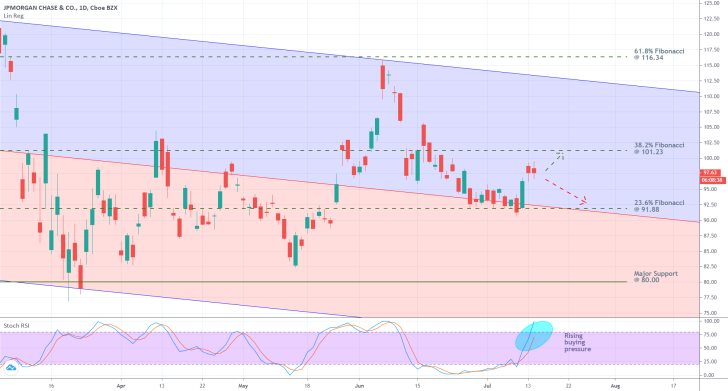
Resolute JPMorgan Chase Weathers the Crisis. Its Q2 Profits Beat the Initial Expectations
Earlier today, JPMorgan Chase delivered its earnings report for the second quarter of 2020. The findings of the report surpassed the consensus forecasts, which were expecting the company to announce earnings per share of $1.04.
Instead, the financial giant reported EPS of $1.38. Additionally, JPMorgan's revenue that has been generated during the previous quarter reached $33.8 billion, which exceeded the initial estimate of $30.3 billion.
One of the world's leading financial institutions commenced the new earnings season by breaking all sorts of previous records, despite the unprecedented situation that has been weighing on the global capital markets since early-February.
JPMorgan Chase's trading revenue surged to $9.7 billion – up 79 per cent on a yearly basis. Despite this being the company's strongest performance in that aspect on record, the massive gains in JPMorgan's trading revenue elucidate the company's preparedness to survive and thrive under the prevailing market uncertainty.
Jamie Dimon, Chairman and CEO of JPMorgan Chase, commented on the earnings report by saying:
"[…] We ended the quarter with massive loss-absorbing capacity - over $34 billion of credit reserves and total liquidity resources of $1.5 trillion, on top of $191 billion of CET1 capital, with significant earnings power that would allow us to absorb even more credit reserves if needed. […] “We earned $4.7 billion of net income in the second quarter despite building $8.9 billion of credit reserves because we generated our highest quarterly revenue ever, which demonstrates the benefit of our diversified global business model. Record Markets revenue (up 79%) and Investment Banking fees (up 54%) in the Corporate & Investment Bank more than offset interest rate headwinds and reduced consumer activity. [..]"
The fact that JPMorgan Chase has been able to generate such record-breaking profits despite having to build these massive credit reserves as a precautionary measure is an attestation to the soundness of its business model, as was claimed by Dimon.
This type of quarterly performance adds to the intrinsic value of JPMorgan's shares, which have not been impacted by speculative trading so far.
In other words, going long on JPM shares would be justified not merely as a day trading reaction to the overwhelmingly positive earnings report, but also as a way of value investing.
The multinational investment bank has shown traders and investors that its model remains resilient under the uncertain market conditions, and they can now weigh in on the prospects for sustained growth of JPMorgan's shares.
Meanwhile, the initial jump in the underlying share price immediately following the release of the earnings report was quickly invalidated after the American open.
JPMorgan Chase currently trades at around $98.33 per share.
As can be seen on the daily chart below, the price action remains contained within the 38.2 per cent Fibonacci retracement level at 101.23, and the 23.6 per cent Fibonacci retracement level at 91.88.
It recently rebounded from the middle line of a major regression channel, which substantiates the expectations for more gains in the near future.





















